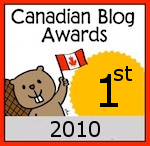A little over two years ago, Venezuela had its saddest moment since the death of Simón Bolívar: namely, that of its modern Bolívar, Hugo Chávez, president and leader of the Bolivarian Revolution. His successor was one of his closest friends, and here he recounts what it was like to receive the worst possible news on that sad day:
Venezuelan president Nicolás Maduro has revealed some details of how the death of former president Hugo Chávez occurred, and how he dealt with it, on March 5, 2013.
In a conversation with the first lady, Cilia Flores, and Elías Jaua, Minister for Communes and Social Movements, Maduro recalled how he arrived at the military hospital where Chávez was, from a meeting in Miraflores Palace.
“The emergency doctor came back in 15 or 20 minutes and told us that there was a difficult situation, that Chávez had had a [heart] stoppage, and that they would do everything to revive him, and then he left,” Maduro recalled during the televised conversation.
They were coversing and making phone calls, Maduro says, “when Dr. Castellanos entered. He opened the door, and I saw on his face that something very grave had happened.”
Maduro says that he entered the room and said to the first persons he saw — Cilia and Elías — “Dr. Castellanos told me the Comandante is gone.”
“Elías cried out, Cilia cried out, we hugged and cried, and, well, we bore that heavy blow,” Maduro added.
The president described how the first thing he did was call his comrades, later going out to inform the people, which “was the hardest part”.
“The people went out in the streets, I felt it. Later a shower fell, a rain that refreshed everyone. The videographers almost all cried together, leaving their cameras. And, well, we had to confront the greatest pain, but with the commitment all the vicissitudes of this battle, and today we’re all still crying for Chávez,” the president commented.
Translation mine.
You can see in their eyes how much they love and miss him. And at the same time you can also see the firm conviction that Chávez has become an immortal part of the land. As the events of the past two years have shown, the Revolution isn’t over yet, by a long shot. The people are still fighting for their freedom from an empire and its local oligarchs, who have tried repeatedly — and failed — to reverse the Comandante’s good work. Repeated efforts at a coup have failed, and one by one, the perpetrators are finally landing in prison. Even dead, he’s still overcoming them.
If that’s not immortality, I don’t know what is.



